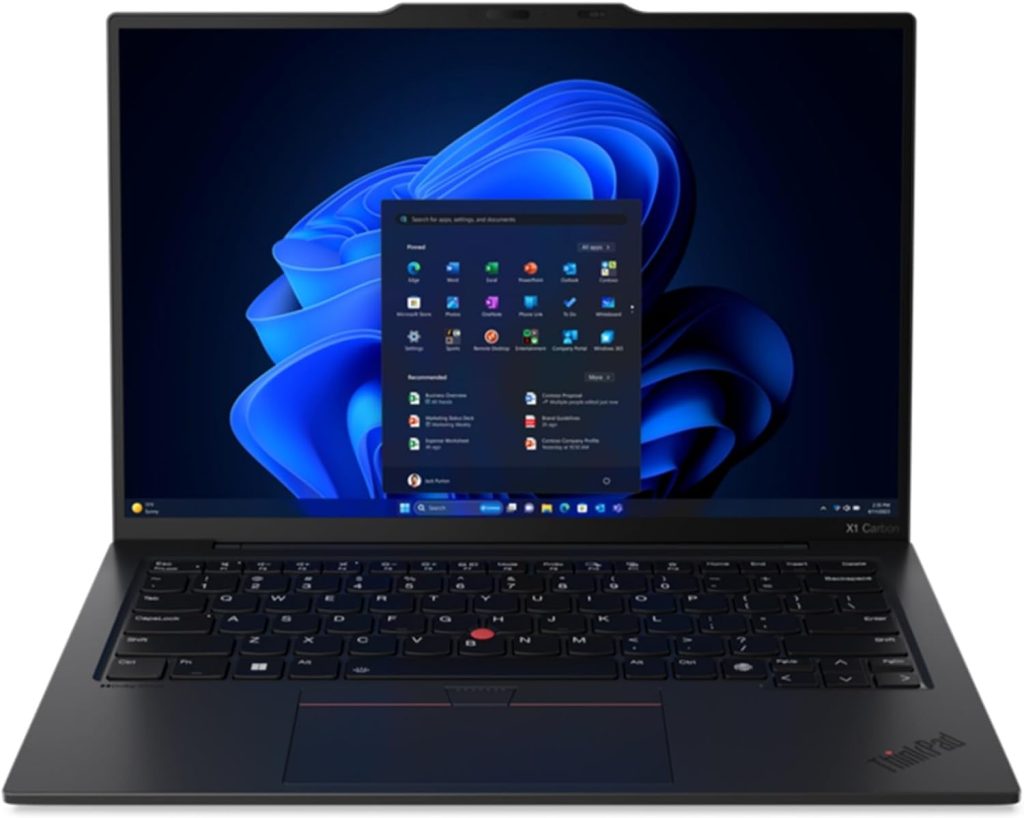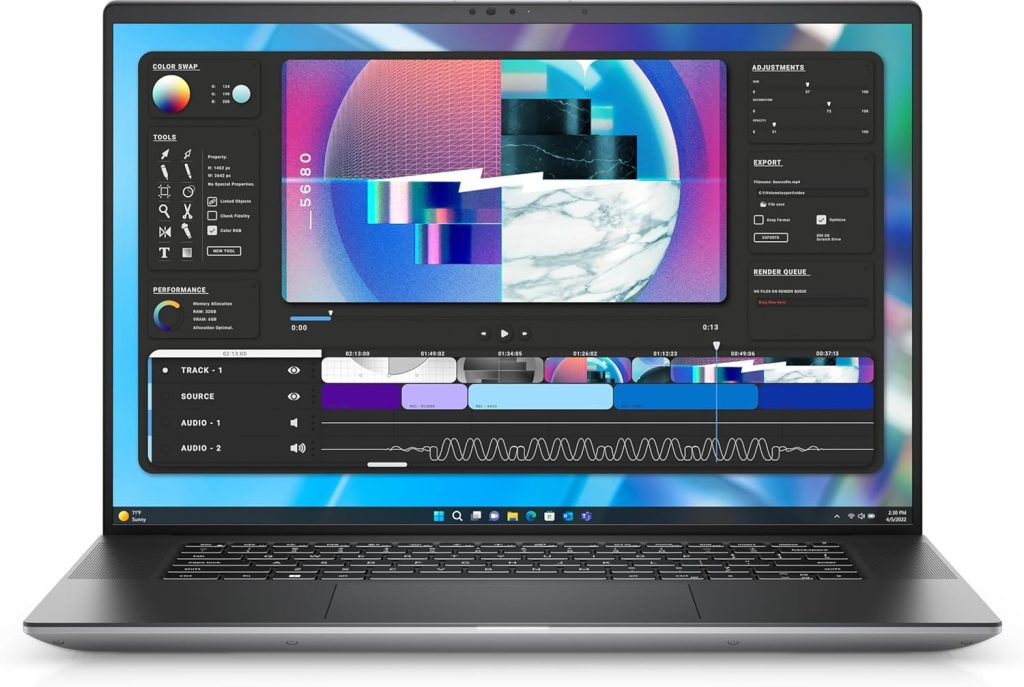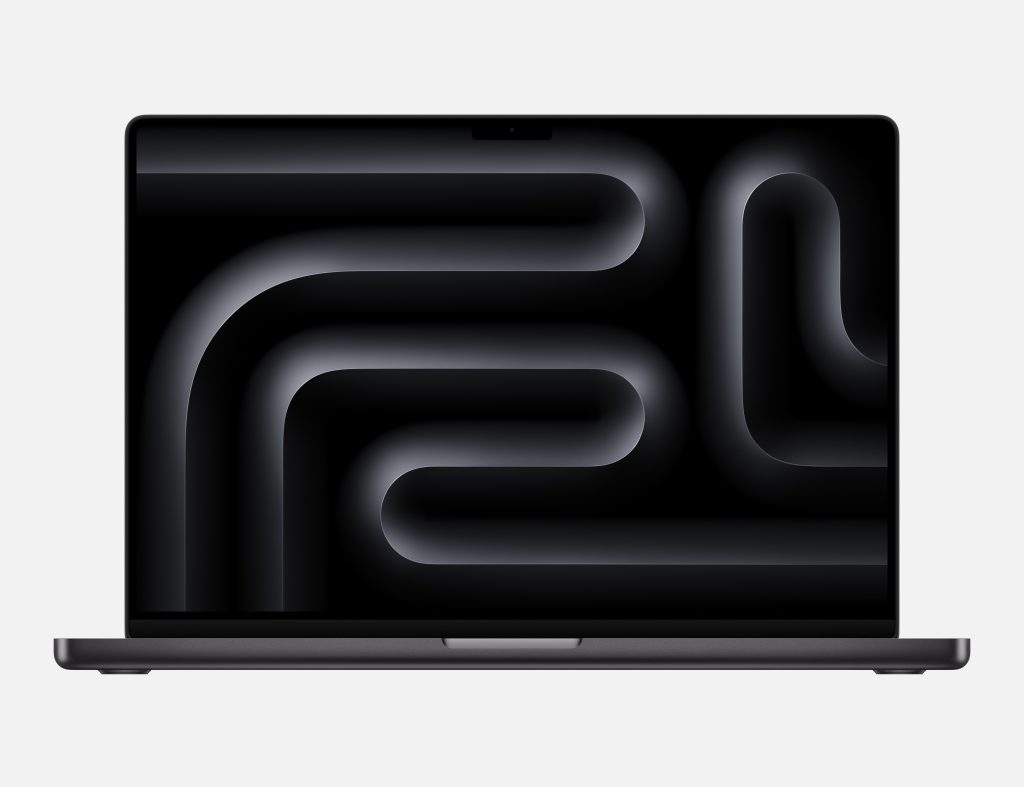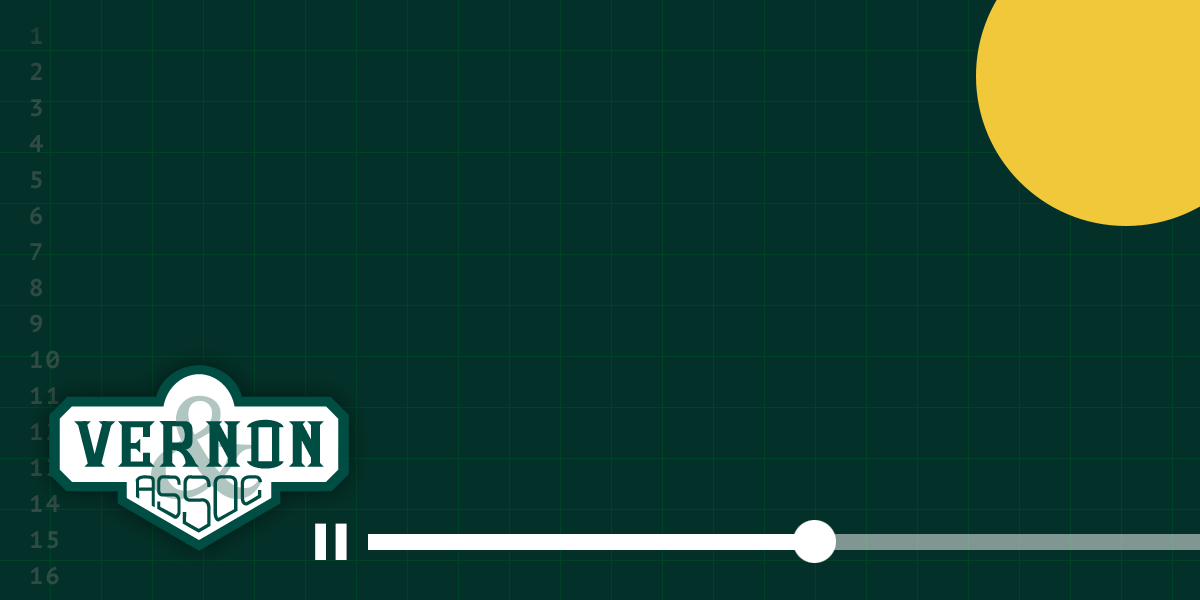Court reporters rely heavily on their laptops to handle large audio and video files, work seamlessly with court reporting software, and stay portable for jobs on the go. Choosing the right laptop is crucial for ensuring smooth performance while working with demanding programs like CaseCatalyst or ForTheRecord. Here are three top options for court reporters, each offering a unique balance of power, storage, and portability.
Lenovo ThinkPad X1 Carbon
The Lenovo ThinkPad X1 Carbon is a favorite among professionals for its lightweight design, making it extremely portable and easy to carry between assignments. Despite its slim profile, it packs a punch with ample storage and processing power.

- Storage: Available with up to 1TB SSD, offering more than enough space for large video and audio files.
- Memory: With up to 32GB of RAM, the X1 Carbon ensures smooth operation when running multiple programs, such as CaseCatalyst and other transcription software.
- Portability: At just 2.48 pounds, this is one of the most portable options, perfect for court reporters who are constantly on the move.
- Battery Life: Boasts an impressive battery life of up to 15 hours, so you can work without constantly searching for an outlet.
- Best For: Reporters looking for a highly portable, lightweight laptop without sacrificing power or storage.
Price: Starting at $1,900
Dell Precision 5680
The Dell Precision 5680 is a full-sized workstation built for those who need serious processing power and ample storage. It’s perfect for court reporters who work with large amounts of data, including video and audio files, and need a machine that can handle demanding tasks.

- Storage: With options up to 4TB SSD, the Precision 5680 offers extensive storage, ideal for managing vast amounts of court-related files.
- Memory: Configurable with up to 64GB of RAM, this laptop ensures smooth performance, even when working with intensive court reporting software like ForTheRecord, while multitasking without any slowdown.
- Portability: Weighing around 4.6 pounds, this laptop is heavier than the X1 Carbon but packs significantly more power, making it a top choice for stationary work or when maximum performance is needed.
- Display: The large 16-inch UHD display is perfect for reviewing detailed transcripts, video playback, and multitasking.
- Best For: Reporters who prioritize power and storage over portability, and those handling extensive video and audio files regularly.
Price: Starting at $1,800
Apple MacBook Pro 16″ M3 Pro (Running Windows)
The Apple MacBook Pro 16″ with M3 Pro chip is a powerful machine that offers excellent performance and can be configured to run Windows for those court reporters who prefer Apple’s hardware but need Windows for court reporting software compatibility.

- Storage: Configurable up to 8TB SSD, making it a top choice for those who need massive amounts of space for storing case files, transcripts, and large video/audio recordings.
- Memory: The MacBook Pro comes with up to 64GB of unified memory, ensuring it can handle any court reporting software while maintaining a fluid, fast user experience.
- Versatility: With the option to run Windows via Boot Camp or a virtual machine, this laptop gives you the flexibility to switch between macOS and Windows, depending on your needs.
- Performance: The M3 Pro chip offers blazing-fast performance, making it more than capable of running transcription programs, handling heavy data, and multitasking.
- Portability: At 4.7 pounds, it’s slightly heavier than the X1 Carbon but still manageable for court reporters on the go, especially with its robust battery life of up to 17 hours.
- Best For: Reporters who love the Apple ecosystem but need the flexibility to run Windows for court reporting tasks.
Price: Starting at $2,899
Why Storage and Memory Matter for Court Reporters
Storage: Court reporters regularly handle large files, including video depositions, court hearings, and audio recordings. Having ample storage space ensures you don’t run out of room for important case files and can work without constantly offloading data to external drives.
Storage
Court reporters regularly handle large files, including video depositions, court hearings, and audio recordings. Having ample storage space ensures you don’t run out of room for important case files and can work without constantly offloading data to external drives.
Memory (RAM)
Running court reporting software like CaseCatalyst, Eclipse, or ForTheRecord smoothly requires a decent amount of RAM. A higher RAM capacity allows you to multitask—whether it’s running multiple applications, handling large audio files, or working with high-resolution video footage—without the system slowing down.
Choosing the Right Laptop for Your Needs
For Portability
If you’re frequently on the go and need a lightweight, high-performance laptop, the Lenovo ThinkPad X1 Carbon is the best option, offering a perfect balance of portability and power.
For Maximum Power
If storage and raw processing power are your top priorities, the Dell Precision 5680 is your go-to option. Its workstation-level performance ensures you can handle any task, no matter how demanding.
For Apple Fans
If you prefer Apple’s ecosystem but need Windows compatibility, the Apple MacBook Pro 16″ M4 Pro offers unparalleled versatility with the ability to run both macOS and Windows, alongside massive storage options and excellent performance.
Each of these laptops is designed to meet the needs of court reporters, ensuring smooth workflow, secure data storage, and comfortable use over long hours. Whether you need portability or power, these options provide reliable performance for any court reporting task.
Essential Accessories for Court Reporters: Docks, Card Readers, and CD Drives
Many modern laptops are built for portability, which often means fewer ports and no built-in CD drives. For court reporters who handle a variety of data sources, external accessories like docks, card readers, and CD drives can be incredibly useful. Here’s a look at some must-have accessories to complement your laptop setup:
Docking Stations
A docking station can expand your laptop’s input/output (I/O) capabilities, allowing you to connect multiple devices and peripherals at once. This is especially valuable for court reporters who may need additional USB ports, HDMI, Ethernet, and more.
- Recommended Models:
- CalDigit TS3 Plus: Offers a wide range of ports including USB-A, USB-C, HDMI, SD card reader, and Ethernet, all in a compact, high-quality build.
- Dell WD19: Perfect for Dell laptop users, it provides seamless connectivity with additional USB ports, HDMI, DisplayPort, and Ethernet.
- Benefits:
- Connect multiple devices simultaneously (e.g., keyboard, mouse, external drives).
- Power your laptop and connected devices through a single power source.
- Easily transition between office and mobile setups.
External Card Readers
Court reporters often receive case materials on SD cards, which may require an external card reader if your laptop doesn’t include one. A reliable card reader lets you quickly access files without hassle.
- Recommended Models:
- SanDisk Extreme PRO SD UHS-II Card Reader: Known for its fast transfer speeds, this card reader is ideal for quickly moving large audio and video files.
- Anker 2-in-1 USB-C Card Reader: Compact and portable, this card reader supports both SD and microSD cards and is compatible with USB-C ports.
- Benefits:
- Quickly transfer data from SD cards to your laptop.
- Compact and easy to carry in your bag.
- Allows easy access to court video/audio files provided on SD cards.
External CD/DVD Drives
Although most laptops no longer include built-in CD/DVD drives, many court reporters still receive case files on CDs or DVDs. An external CD/DVD drive ensures you can access these files without issue.
- Recommended Models:
- LG Electronics 8X USB 2.0 Super Multi Ultra Slim Portable DVD Writer: Compact and affordable, this drive can handle CD and DVD formats and is compatible with both Windows and macOS.
- Apple USB SuperDrive: Designed for Mac users, this external drive is sleek, easy to use, and compatible with all Mac laptops.
- Benefits:
- Allows playback of CDs and DVDs, which can be crucial for accessing certain court-provided materials.
- Simple plug-and-play functionality with most laptops.
- Ideal for archiving and storing court files or backing up important data.
Why These Accessories Matter for Court Reporters
- Data Access: A variety of data formats are used in court reporting, from SD cards to CDs. Having the right accessories ensures you can access and manage files regardless of the format.
- Workflow Efficiency: Docks allow you to set up an efficient workspace with multiple devices, reducing setup time and enhancing productivity.
- File Management: With external drives and card readers, you’re able to store, access, and back up data easily, keeping everything organized and secure.
These accessories not only enhance your laptop’s capabilities but also make it easier to manage data-heavy court reporting tasks. By choosing the right tools, you can optimize your workflow, stay organized, and ensure you’re prepared for any data format that comes your way.


